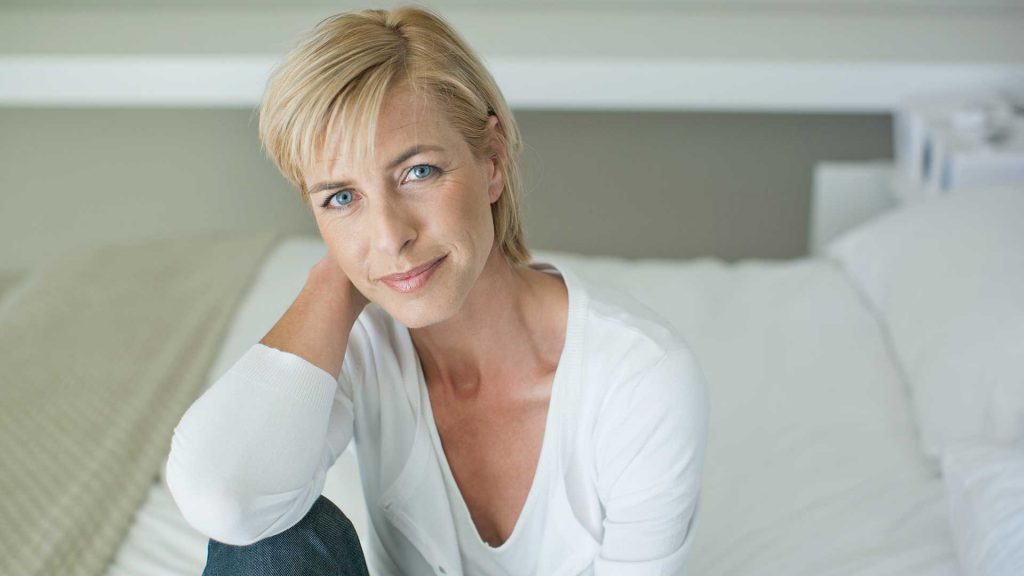The main matters of menopause
‘It’s impossible to be sure of anything except death and taxes’.
You could argue that taxes aren’t all that certain (not for certain people, anyway).
You could also argue that, for women, menopause is certain. Eventually, all women will reach a point in their lives where their periods stop, and their ovaries no longer produce eggs.
Menopause marks the end of a woman’s reproductive stage of life. For some, it’s a huge relief. For others, it’s a huge grief.
Menopause is different for all women. Here, we’ll cover some of the first signs of menopause.

What is menopause?
Menopause is sometimes called ‘the change of life’. It happens when your ovaries stop producing hormones and eggs. This means your menstrual cycle will stop.
Menopause is medically defined as no periods for one full year.
But menopause is a process and not an on/off switch, and includes perimenopause and post-menopause.
Perimenopause
Perimenopause means around menopause. It’s includes pre-menopause symptoms several years before your period and any post-menopause symptoms, 1 year after your last period. During pre-menopause:
- Oestrogen and progesterone levels fluctuate widely – causing the common symptoms of menopause.
- Your pattern of periods changes, becoming irregular (less often or more often).
- You may have less bleeding than usual, or maybe more. And it can change from month to month.
Post-menopause
Post-menopause is the final stage of menopause.
- During post-menopause, some symptoms such as hot flushes usually become less bothersome or disappear altogether.
- Your risk of cardiovascular disease and osteoporosis naturally increase in post-menopause.
When does menopause start? How long does menopause last?
For most Australian women, menopause happens between the ages of 45 and 55.
- Many women start having menopausal symptoms about four years before their last period.
- Symptoms can often last about four years after a woman’s last period.
- Menopause can last an average of eight years.
Sometimes, it can last longer. About 1 in 10 women experience menopausal symptoms for 12 years following their last period.
Your genetics and your ovary health — as well as your general health — affect when you’ll begin menopause.
What are the symptoms of menopause?
Menopause can cause symptoms that interfere with your daily life. Menopause symptoms vary from woman to woman but generally include:
- hot flushes
- night sweats
- sleep disturbances
- joint pain
- anxiety or mood swings
- changes in libido (sex drive)
- bone loss
- changes to your vagina
- changes in body weight
Falling oestrogen levels are the main culprit behind most of these symptoms.

What are the main treatments of menopause?
You should speak to a doctor to find out the right treatment for you. You can request a telehealth consultation with one of our Australian-registered doctors from anywhere in Australia, seven days a week.
To speak with an InstantScripts Doctor:
Request a ConsultationIf you have run out of your script:
Request a Script© InstantScripts
Level 8 / 637 Flinders St.,
Docklands VIC 3008

